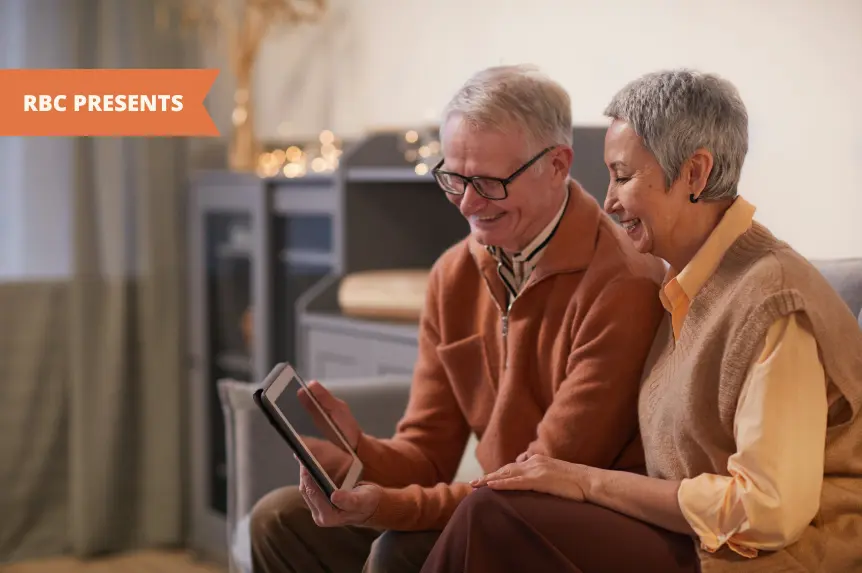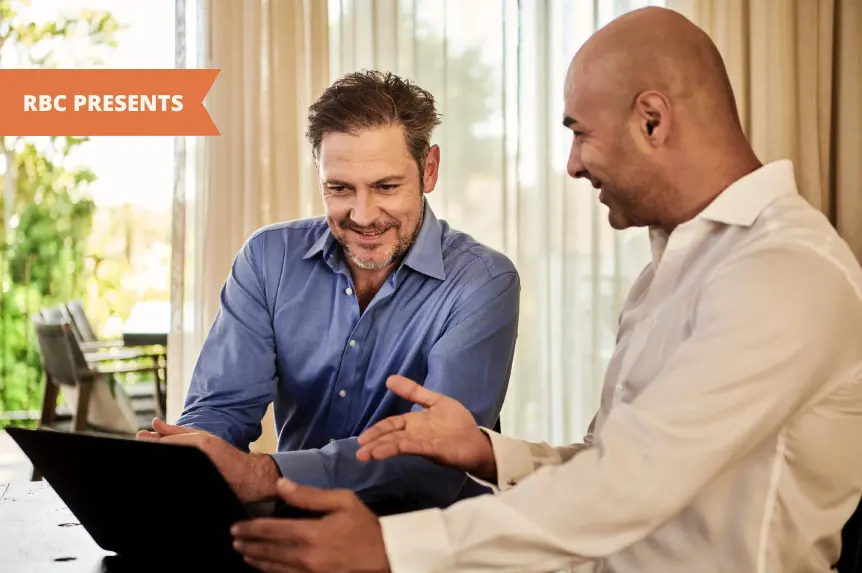Coffee With An Estate Lawyer: Will Myth-Busters

November is Make a Will Month, so what better time to kick-off a new Instagram LIVE series called “Coffee with an Estate Lawyer.” This series gives you the opportunity to join a couple of estate lawyers *live* (over a cuppa joe) and learn about different aspects of estate planning (plus get your questions answered.)
As you may or may not know, Epilogue was founded by two former estate lawyers, Daniel Goldgut and Arin Klug. Together, they have over a decade’s worth of experience with Wills and estate planning.
Over the years, they’ve heard it all when it comes to reasons why people hadn’t completed their Will. They realized there is a lot of misinformation out there when it comes to estate planning.
In episode #1 of Coffee with an Estate Lawyer, Daniel and Arin address some common myths about Wills. Read on for a total busting of the top 6 myths around estate planning (see below for full Instagram Live video.)
Myth #1: You need a lawyer to make a Will
This is a total myth: You do NOT need a lawyer to make a Will. There’s no legal requirement to have a lawyer involved in the creation of a Will in Canada.
Having said that, while most people only need a basic Will, there are some more complicated situations where it’s a good idea to consult a lawyer to complete your estate planning. For example:
You want to exclude a spouse or child from your Will
You are in a second marriage with children from a prior relationship
You have a family member with a disability who is receiving government benefits
You have assets like real estate outside of Canada
You want to do sophisticated tax planning
Writing a Will without a lawyer has never been more accessible than it is today. You can make a Will online with a service like Epilogue, you can make one by hand (called a holographic Will,) or buy a DIY Will kit. That being said, it’s very easy to make mistakes and miss important steps with a holographic or DIY Will kit.
Myth #2: I don’t have enough stuff to make a Will
Here’s the thing: A Will isn’t about things, it’s about people. Making a Will is the single most important thing you can do to protect the ones you love most.
It becomes especially important if you have young kids. Making a Will is the only way to legally name a guardian who would take care of your children if you pass away while they are still minors.
A Will also allows you to choose an executor who will carry out all your wishes after you pass away. A Will is the only way to legally appoint someone as executor and allow them to gain access to your bank accounts and manage your assets after you die. There’s no other way to legally give someone that authority.
Without a Will, someone has to apply for the role of estate trustee and it becomes a lengthy (and expensive) court process.
Myth #3: I’m too young to have a Will
A lot of people put off making a Will because they want to wait until they finish growing their family or accumulating their wealth.
But here’s the thing: A Will isn’t a document you create once. It’s a living document that should evolve as your life evolves. The best day to make a Will is TODAY.
Many have the misguided belief that every time you want to update your Will, it will cost a lot of money with a lawyer. This isn’t necessarily the case. If you make your Will with an online service, like Epilogue, updates are free.
Think about your Will as a document that will (and should) be reviewed and updated regularly as you go through different life stages. You should update your Will when you:
Get married, separated, or divorced
Have a child
Get a new pet
Purchase a new home
Inherit a large sum of money
Purchase a valuable asset
Myth #4: My spouse will get everything if I die without a Will
This is a total myth. It really depends on your specific family situation.
Dying without a Will is called dying “intestate.” Every province has a set of rules (called intestacy law) that must be followed when someone dies intestate.
In Ontario, if you have a spouse and no kids then, yes, your spouse will get everything if you die without a Will. Once kids are in the picture things change: your assets get split in a specific way between your spouse and your children.
This especially becomes messy if you live with a common-law partner. In many provinces, including Ontario, if a person isn’t legally married they don’t have an entitlement. The only way to ensure your common-law partner inherits a portion of your estate is to make a Will.
Myth #5: You need to make a list of everything you own to make a Will
It’s a good idea to take inventory of what you have, but you only need to do so in a general sense. Do you have money in the bank? Are there family heirlooms like a painting or piece of jewelry you want to leave to a specific person? You can do all of that in your Will.
You DO NOT need to a full inventory of every item in your house or mention each bank account by name.
Typically, people end up distributing the bulk of their estate (the “residue”) in shares. For example, you could split your residue into equal portions to distribute among your kids.
It’s not a good idea to get too specific in your Will because you’d have to update your Will any time something changed like you closed a bank account or sold your car and got a new one.
Check out this Will preparation checklist that details what exactly you need to have prepared to make a Will.
Myth #6: After I die, there will be a formal Will-reading
Hollywood would lead you to believe that after someone dies, a lawyer gets everyone around a mahogany table to do a dramatic reading of the Will. This isn’t a thing.
There’s no formal reading of the Will and you don’t need a lawyer to read it out to you or anyone else. A lawyer can be a good resource to guide an executor through the process of carrying out someone’s wishes, but there’s no such thing as an official will-reading.
Conversations about the contents of your Will should actually happen before someone passes away. Because if someone has a question, it’s best that the person making the Will is around to answer it! It’s important to have conversations with the people named as executor and guardians of any minor children.
You may even want to have conversations with some of your beneficiaries so they understand why you made the decisions you did. These candid conversations can save your loved ones some potential arguments and tension down the road.










